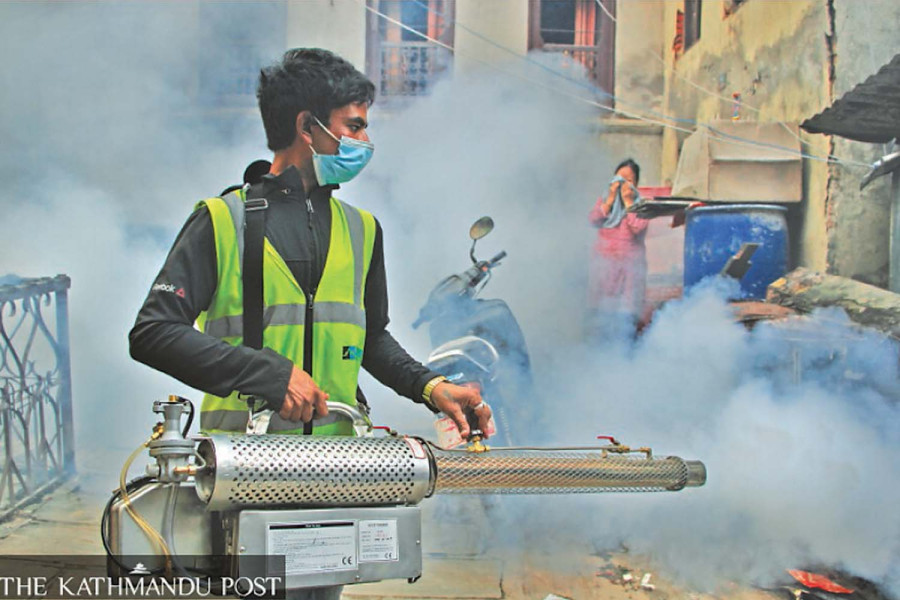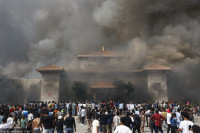Kathmandu
KMC urges residents to stay alert against dengue
City intensifies larva-control drives as transmission remains high during rainy season.
Post Report
The Kathmandu Metropolitan City has urged residents to stay alert as dengue transmission through mosquito bites continues.
According to Rishi Prasad Bhusal, focal person of the Metropolitan City’s Epidemic Disease Prevention and Control Programme, teams are working to identify mosquito breeding sites and destroy larvae. Health workers, female health volunteers, and local residents are carrying out larva-control drives in all wards and at the community level.
Bhusal said that, based on past trends, dengue transmission fluctuates during the rainy season, with higher cases usually recorded between August and November. He added that maximum efforts are being made to reduce the mortality rate among city residents.
The first dengue case in KMC was detected in 2018 in a woman from Chamati. The Aedes mosquito, which spreads the disease, breeds in clean stagnant water. Dengue first appeared in Nepal in 2004.
Within KMC, 2,973 infections were reported in 2022, followed by 643 in 2023, and 2,084 in 2024. From December last year until now, 248 cases have been recorded, according to the Metropolitan City.




 10.12°C Kathmandu
10.12°C Kathmandu









